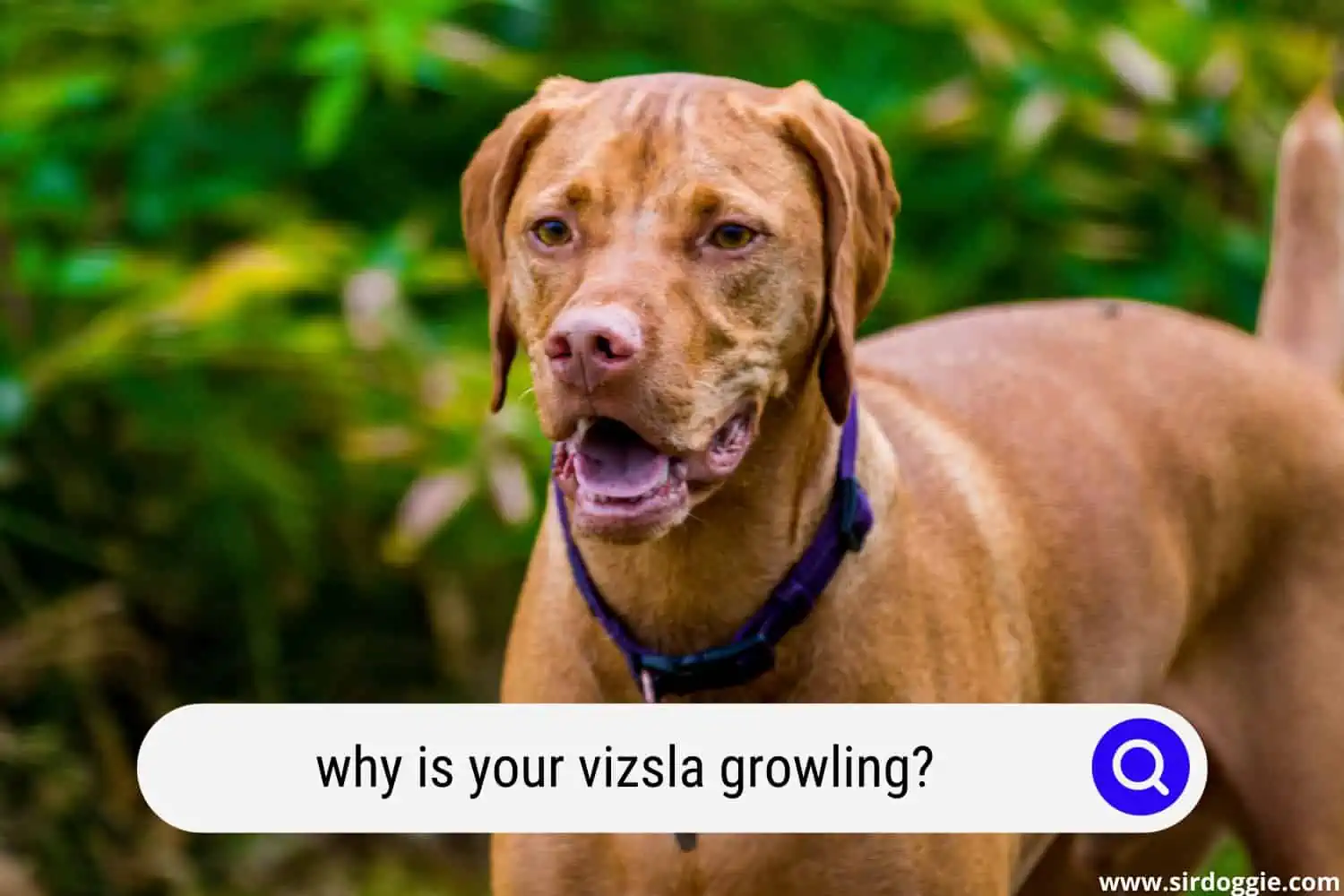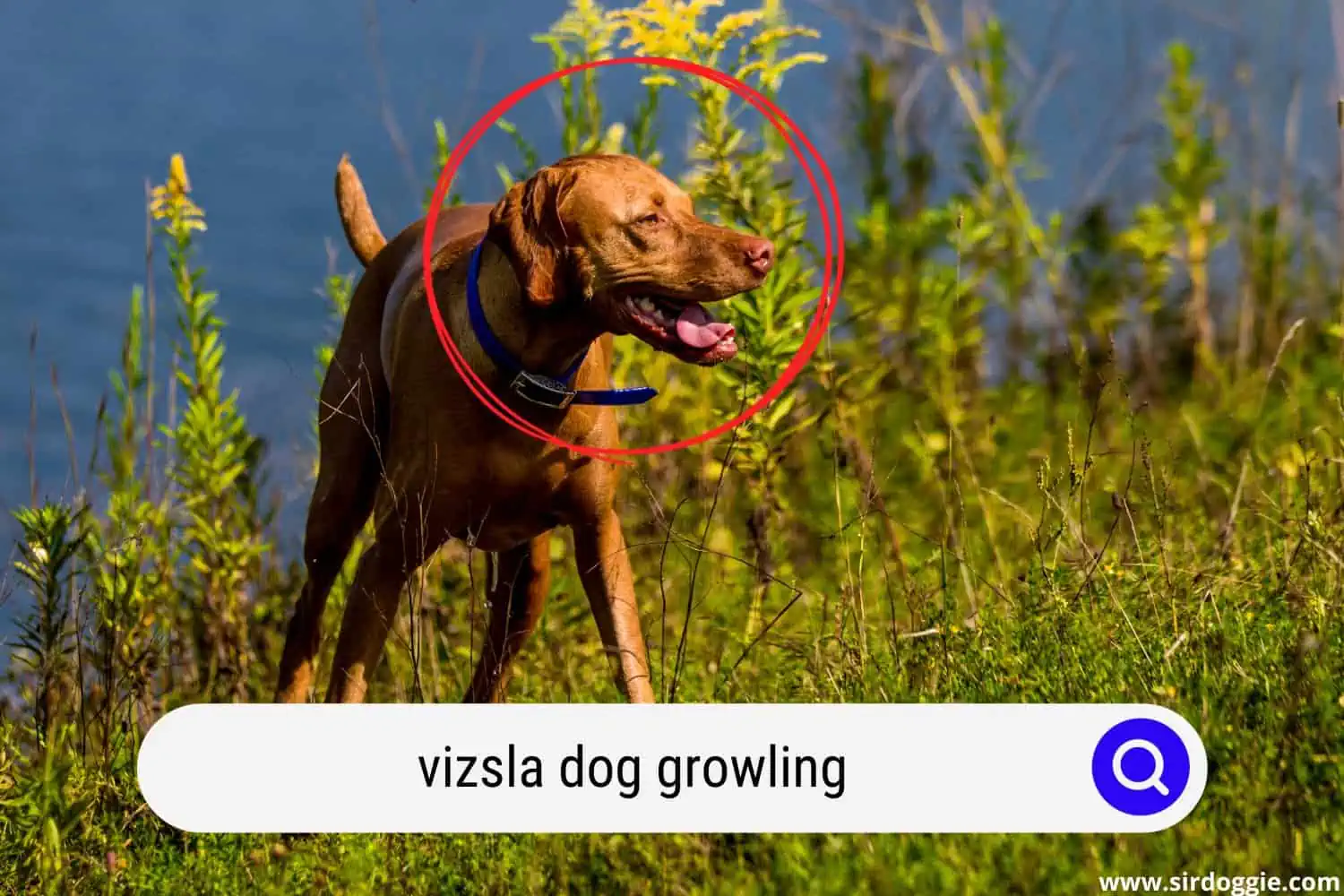Why is Your Vizsla Growling?
There are many breeds of dogs that differ from each other due to certain types of characteristics. The most prominent ones have to do with their personality, temperament, and behavior. Like people, each breed of dog can have a specific nature. Some can be loving and friendly, while others are a little more independent and without the need to give love.

One of the most interesting dog breeds is the Vizsla. This canine is characterized by being an excellent hunting dog and having a high physical activity and energy level.
They are animals that need to spend most of their time doing exercises such as running, swimming, jumping, playing, etc. If they don’t receive constant training and are kept indoors, they could develop destructive behaviors.
In addition, one of the most distinctive characteristics that this dog presents is its personality. Vizslas are very affectionate and friendly canines who love to spend time together with their loved ones, including their owners and members of their human family.
However, they can also get along with strangers and other animals as long as they receive socialization training from puppies.
Vizslas are considered to be very calm and docile dogs which allows them to be excellent pets. Because of this, many people may think that these canines do not growl frequently. That is not entirely true, and we will talk about it below.
Why is Your Vizsla Growling?
Many Vizslas owners don’t know what to do when their pet starts to growl. It is vital that anyone who acquires such a dog knows the growl’s causes and what they must do to stop it.
Before that, we have to know what a dog’s growl is. The growl is a means of communication that all canines use to try to say something to their owners. Let us remember that these animals cannot speak the same language as us, so their sounds are an effective way of communication.
Generally, a Vizsla will growl to communicate certain things related to the fear they feel or some sign of aggression that they want to express for different reasons. That is why it is important to always pay attention to the situation your Vizsla is in when it growls.
Types of Dog Growling Sounds
The growls of a Vizsla will depend on the different situations it finds itself in. These sounds have to do with:
1. Growling as a Game
Vizslas love to play with their owners all the time. It is something that amuses, entertains, and stimulates them mentally and physically. If you notice that this type of canine growls while playing with it, that does not mean that it is angry or uncomfortable about something. Generally, when a Vizsla makes this sound during a game, it means that it is having fun and that it wants to continue playing with you.
2. Growling as a Warning
A growl of this type can be common in Vizslas. While these dogs show no signs of aggression, they can growl when they sense danger or threat towards themselves or their human family members. It is important that, as owners of a Vizsla, we pay close attention to these types of sounds.
3. Growling as a sign of aggressiveness
This type of growl is more detectable by us since it is noticeable that the sound is louder and the canine’s face is more aggressive. Even the posture of the animal can change.
Vizslas are dogs that are not characterized by being aggressive since they are very affectionate and calm animals. However, not all dogs are the same, so it could present symptoms of aggression due to a specific situation that you should avoid.
4. Growling as a sign of Frustration
Vizslas can get very frustrated, especially when they are left alone at home. That can happen due to two situations.
The first has to do with the anxiety they suffer from being a long time without the company of their loved ones, and the second is related to the little exercise that they can do when it is indoors. Unlike the aggressive growl, this one might seem intimidating, but it isn’t.
What to Do When My Vizsla Growls at a Person?
We already know that a Vizsla can growl due to the stress, fear, pain, worry, anxiety, or unhappiness that it is feeling.
Growling at people can be mainly due to the fact that they are violating or threatening something that belongs to the canine. Another reason could be that the Vizsla has an injury, so its only way to communicate pain is through growls.
It is essential to detect the origin of the problem to know what to do. The first thing we have to do is carefully observe the situation to understand exactly why your Vizsla is generating that sound. Once you identify this situation, try to prevent it from continuing to affect your pet.
Later, you can calm your dog by giving it lots of love through hugs or caresses. If you find that this has not entirely calmed it down, you have to try to divert its attention to something else. You can exercise with it or play together. When it stops growling, remember to reward it with its favorite treat.
Vizslas are sensitive dogs that must be treated properly. If it is growling, you should not get angry with it or treat it with violence as it will make the situation worse. Also, do not try to force it to calm down, as you will only get it to behave aggressively and possibly try to attack you.

What to Do to Stop My Vizsla from Growling?
It is most recommended that this process be carried out when your Vizsla is a puppy since, during that stage, it has not yet developed bad habits or behaviors.
It is important that we accustom our Vizsla to different situations that may cause it discomfort or fear. You can start with something basic like touching your pet’s bowl and food frequently. In fact, you could try to take its food away while it is eating, although you have to make sure to do so only on certain occasions.
An excellent way to prevent your Vizsla from growling is by providing socialization training from puppyhood. Allow your dog to get used to visits from other people and also to be with other animals.

Family Dog Expert Author
Hi there! I’m Stuart, a devoted dog lover and family dog expert with over a decade of experience working with our furry companions. My passion for dogs drives me to share my knowledge and expertise, helping families build strong, loving bonds with their four-legged friends. When I’m not writing for SirDoggie, you’ll find me hiking, playing with my beautiful dog, or studying music.